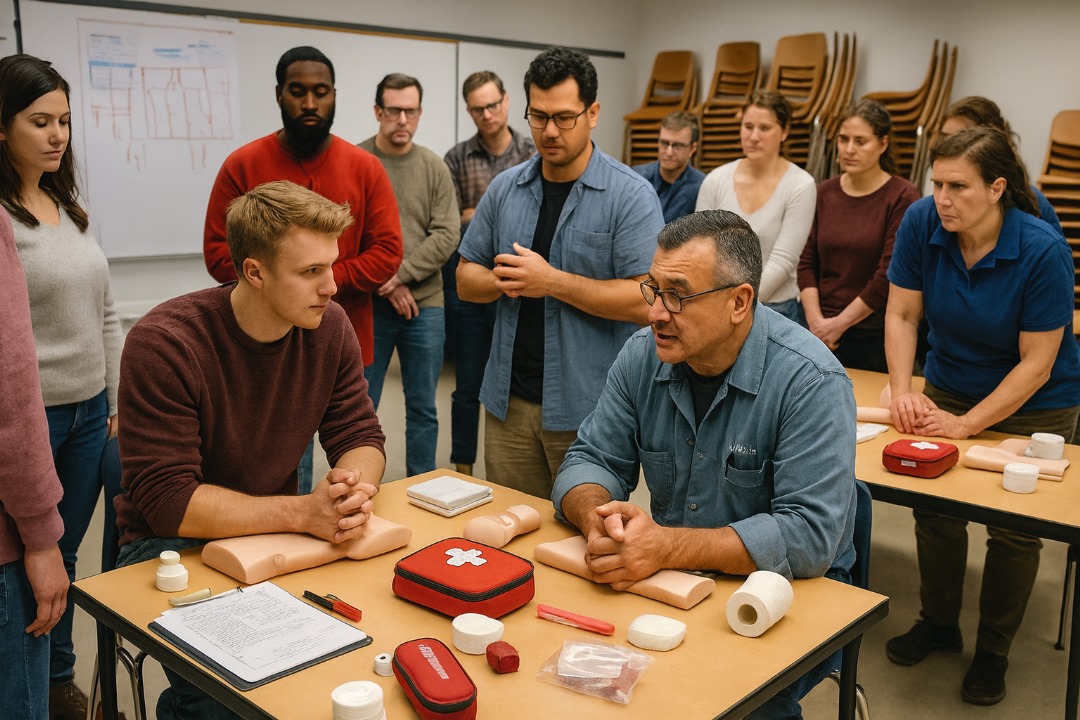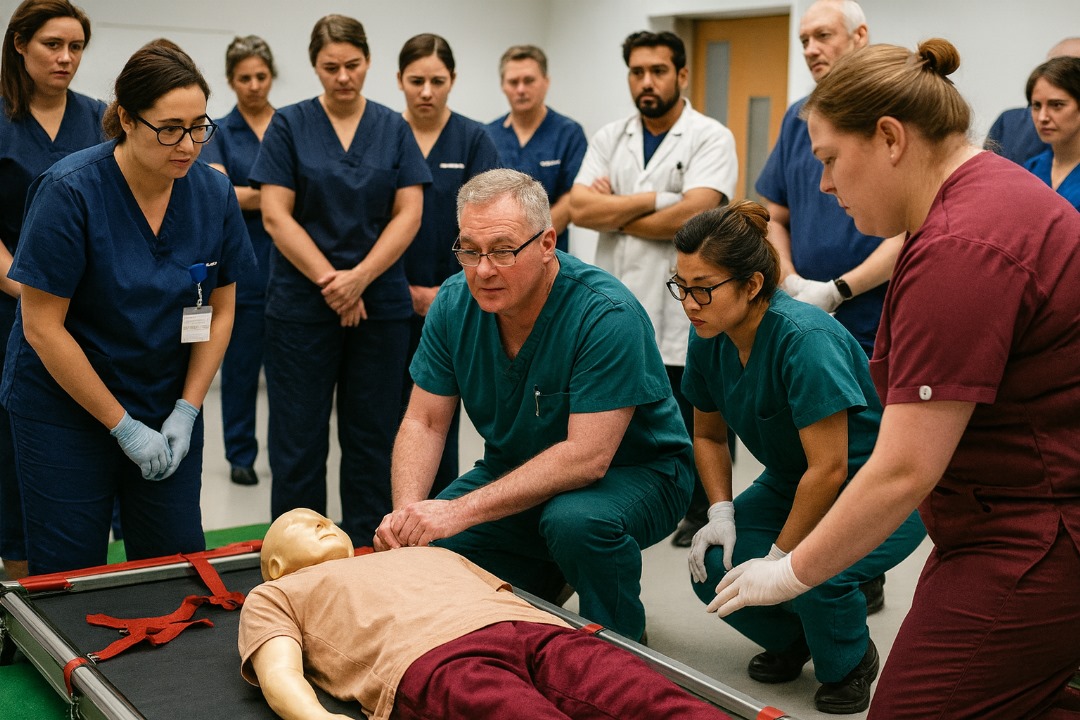Medication Administration Training
This comprehensive course on medication administration aims to equip healthcare professionals with the necessary knowledge and skills to ensure the safe and appropriate prompt administration of medication. Participants will gain an understanding of the importance of maintaining service users' privacy, dignity, independence, choice, safety, and consent, while also becoming familiar with relevant legislation, organisational policies, and procedures.Training Outcomes:Upon completion of this course, participants will be able to:Understand the necessity of medication training.Realise the importance of maintaining service users' rights and safety.Be aware of legislation surrounding medication administration.Familiarise themselves with organisational medication policies and procedures.Recognise their boundaries when assisting with medication.Become competent in administering or assisting a service user with their medication.Scenario:The primary aim of assisting or administering medication is to facilitate recovery from illness, maintain independence, choice, dignity, and safety. Issues such as consent and lack of mental capacity will also be addressed within the context of medication administration.Lesson 1: Legislation and Medication:Participants will learn about key legislation related to medication administration, including the Medicines Act 1968, Misuse of Drugs Act 1971, Health & Safety at Work Act 1974, and others. Understanding these laws is crucial for ensuring compliance and patient safety.Lesson 2: Service User Independence:Participants will understand the importance of respecting service users' independence and expectations regarding medication management. The course will address how to support service users in managing their medication independently or with minimal assistance.Lesson 3: Roles and Responsibilities:The roles and responsibilities of care workers and organisations in ensuring medication administration aligns with service users' needs and requirements will be discussed.Lesson 4: Levels of Administration:Participants will learn about the different levels of medication administration, including assistance, prompting, and full administration, based on the service user's needs and abilities.Lesson 5: Classification of Medicines:An overview of different classifications of medicines, including prescription-only, pharmacy medicines, over-the-counter medications, controlled drugs, and complementary remedies, will be provided.Lesson 6: Types of Medication:Common types of medication, such as antibiotics, analgesics, antihistamines, and others, will be discussed in terms of their indications and administration.Lesson 7: Routes of Administration:Various routes of medication administration, including ingestion, topical, instillation, inhalation, injection, and others, will be explored.Lesson 8: The 7 'Rights' of Medication Administration:Participants will understand the importance of the seven 'rights' of medication administration: dose, medication, person, time, route, documentation, and reason.Lesson 9: 6 & 7 Rs:The significance of proper documentation and understanding the reason for administering specific medications will be emphasised to ensure accuracy and patient safety.Lesson 10: Problems with Checking Medication:Common problems encountered during medication checking, such as receiving the wrong medication or dosage, will be addressed, along with strategies to mitigate these issues.Lesson 11: Preparing to Administer Medication:Participants will learn the necessary steps for preparing to administer medication, including hand-washing, checking the Medication Administration Record (MAR), and selecting medication using a 'no touch technique.'Lesson 12: Administering Medication:The process of administering medication, including obtaining consent, ensuring the correct person, offering water, and recording the administration, will be thoroughly discussed.Additional topics such as applying cream, using inhalers/nebulisers, and using aids for medication administration will be covered.Lesson 13: Refusal of Medication:Guidelines for handling medication refusal, including respecting the service user's rights, documenting refusals, and reporting to appropriate authorities, will be outlined.Lesson 14: Reporting and Seeking Advice:Participants will learn how to report reactions to medication, refusal to take medication, errors in administration, and errors in prescribing/dispensing, and when to seek advice.Lesson 15: Medication Administration Record (MAR):The importance of accurate and complete medication records, including receiving, checking, administering, and recording outcomes, will be highlighted.Lesson 16: Disposal of Medication:Guidelines for the safe disposal of medication, including policy adherence, obtaining consent, and proper disposal methods, will be discussed.Conclusion:This course will conclude by summarising key concepts related to medication administration, including service user independence, medication classification, routes of administration, the 'seven rights,' checking procedures, preparation, administration, recording, and disposal. Participants will leave equipped with the knowledge and skills to ensure safe and appropriate medication administration practices in their professional roles.





